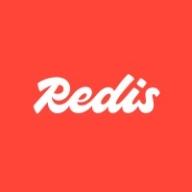

Find out in this report how the two Message Queue (MQ) Software solutions compare in terms of features, pricing, service and support, easy of deployment, and ROI.
| Company Size | Count |
|---|---|
| Small Business | 8 |
| Midsize Enterprise | 4 |
| Large Enterprise | 17 |
| Company Size | Count |
|---|---|
| Small Business | 11 |
| Midsize Enterprise | 3 |
| Large Enterprise | 9 |
Apache ActiveMQ is the most popular and powerful open source messaging and Integration Patterns server.
Apache ActiveMQ is fast, supports many Cross Language Clients and Protocols, comes with easy to use Enterprise Integration Patterns and many advanced features while fully supporting JMS 1.1 and J2EE 1.4. Apache ActiveMQ is released under the Apache 2.0 License
Redis offers high-speed, in-memory storage, renowned for real-time performance. It supports quick data retrieval and is used commonly in applications like analytics and gaming.
Renowned for real-time performance, Redis delivers high-speed in-memory storage, making it a favorite for applications needing quick data retrieval. Its diverse data structures and caching capabilities support a broad array of use cases, including analytics and gaming. Redis ensures robust scalability with master-slave replication and clustering, while its publish/subscribe pattern renders it reliable for event-driven applications. The solution integrates smoothly with existing systems, minimizing performance tuning needs. Although documentation on scalability and security could be improved, Redis remains cost-effective and stable, commonly utilized in cloud environments. Enhancing integration with cloud services like AWS and Google Cloud and refining GUI may improve usability.
What are the key features of Redis?Redis finds application across industries for tasks like caching to improve application performance and speed, minimizing database load. It enables real-time processing for session storage, push notifications, and analytics. As a messaging platform, Redis handles high traffic and supports replication and clustering for cross-platform scalability.
We monitor all Message Queue (MQ) Software reviews to prevent fraudulent reviews and keep review quality high. We do not post reviews by company employees or direct competitors. We validate each review for authenticity via cross-reference with LinkedIn, and personal follow-up with the reviewer when necessary.